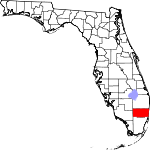Broward County Criminal Court hears all criminal cases in Broward County. Below you will find specific information about criminal cases and how they are handled in Broward County.
Where will Broward County criminal case hearings take place?
Criminal cases will take place at the criminal courts of Broward County. See here for the location of the criminal courts in Broward County.
What is Jury Deliberation?
After both the prosecution and defense have presented their cases, the judge in the case will provide instructions to the jury about what they must decide. The jury will be dismissed to the jury room where they will deliberate about the guilt or innocence of the defendant. After reaching a unaminous decision, they return their decision to the court where it is read aloud in the courtroom. If the jury is unable to reach a unaminous decision, the jury is deadlocked, also known as a hung jury, in which a mistrial will be declared.

Broward County Criminal Court
Broward County Required Court Appearances
In Broward County, there are both required and non-required court appearances for the defendant. At a required or mandatory appearance hearing, the defendant is required to appear in person before the court. Failing to appear at your required hearing may result in a bench warrant being issued for your arrest by the judge.
If guilty, who sentences the defendant?
If the defendant is found guilty after the trial, the defendent will be sentenced. In some cases, this can occur at the same hearing the defendant is found guilty in court, in other cases a separate hearing will be required. Often the prosecution will request a particular sentence for the defendant and the judge will determine whether to enforce this sentence or impose a different sentence for the defendant.
Broward County Prosecutor
For criminal cases in Broward County, the prosecutor will be a representative of Broward County. The Broward County prosecutor reviews all evidence and ultimately decides whether to file or dismiss charges in the case. Most of the time, the prosecutor has leeway in plea negotiations and determines how the case will be prosecuted.
What is a Plea Agreement?
A plea agreement is a deal made between the prosecution and the defendant in a case, where the defendant agrees to plea guilty to a particular charge in exchange for some concession from the prosecutor. In practice, more than 90% of criminal cases end with a plea agreement.
The Right to Trial by Jury
The Sixth Amendment of the United States Constitution guarantees the right to a trial by a jury. This is applicable for when the crime can carry a sentence of 6 months in jail OR a $500 fine, these are known as “Serious Crimes”. The defendant can also waive their right to a speedy and public trial.
What is the Burden of Proof?
The term “Burden of Proof” means that the prosecutor is required to prove the guilt of the defendant beyond a reasonable doubt. If the prosecutor cannot provide proof of the defendants guilt, then the judge or jury in a trial must find the defendant not guilty. In the United States the principle innocent until proven guilty derives from this that the defendant is assumed innocent and the prosecution has the burden of proving beyond a reasonable doubt that the defendant is guilty.
I need help for my Broward County criminal case
The best place to get information about your criminal case is from an attorney. If you cannot afford an attorney, the court will appoint one to represent you which will assist in your case. For general information about your case the Broward County court clerk is able to provide general information about your specific case (e.g. date/time hearings, mandatory appearance, what will take place and what you will be required to do). The court clerk for Broward County will NOT be able to provide legal advice for your case, only an attorney can provide legal advice. The court clerk can provide legal information (like the information found on this website) about your case but cannot provide advice about what you should do in your legal manner.
Can I appeal a guilty verdict?
If found guilty, a defendant may decide to appeal his case to an appelate court. The appellate court will not retry the case, they will examine the proceedings in the lower court to make sure they were done in a legal manner. The appellate court can either uphold the original conviction, or determine that due to errors made in the original trial, that there must be a retrial, resentencing or a complete dismissal of the charges.
What happens in Broward County at an arraignment?
In Broward County the defendant is brought into court and informed by the judge of the charges that have been filed against them along with informing them of their rights. At this time, the defendant can plead guilty, not guilty or no contest. If the defendant pleads guilty or no contest, there will be no trial and the defendant may be sentenced immediately or at a later date. If the defendant pleads not guilty a trial date is set.
What if I can’t afford an attorney?
The 6th Amendment guarantees you the right to an attorney whether or not you can afford one. If you cannot afford one, a public defender will be appointed by the court to represent you.
Broward County Criminal Court Locations
-
Broward County Circuit Court
Address: 201 SE 6th Street, Fort Lauderdale, FL 33301
Phone: 954-831-6565 -
County Court of Broward County
Address: 201 SE 6th Street, Fort Lauderdale, FL 33301
Phone: 954-831-6565 -
County Court of Broward County – North
Address: 1600 West Hillsboro Boulevard, Deerfield Beach, FL 33442
Phone: 954-831-6565 -
County Court of Broward County – South
Address: 3550 Hollywood Boulevard, Hollywood, FL 33021
Phone: 954-831-6565 -
County Court of Broward County – West
Address: 100 North Pine Island Road, Plantation, FL 33324
Phone: 954-831-6565